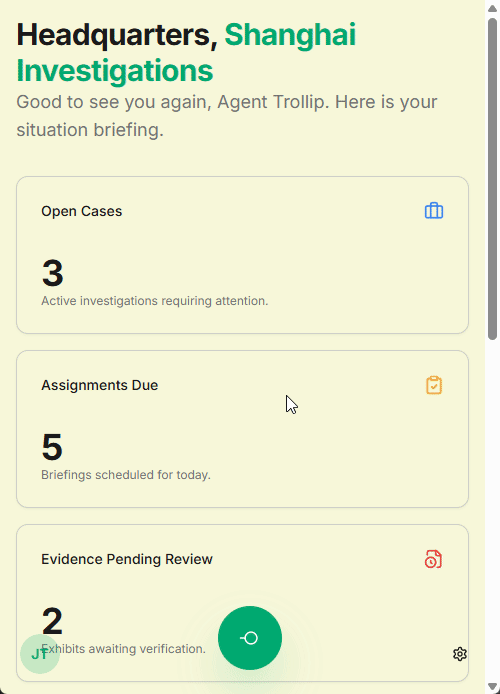The Case for Dignity in Enterprise Software
By Justin Trollip, Founder of Demiton on 21 July 2025
For the past few months, we’ve been deep undercover.
We’ve been on job sites, factory floors, and assembly lines, investigating a series of expensive, high-stakes problems. They all had the same M.O.: the chaotic, stressful gap between a company's day-to-day operations and the mountain of evidence needed to prove their work was done right.
The clues were everywhere: in scattered spreadsheets, buried emails, and three-ring binders held together by hope. We saw the immense pressure placed on good people to hunt for a single piece of paper that could make or break a multi-million dollar project.
Our investigation led to one, inescapable conclusion: the real problem isn't just about managing compliance. It's about the undignified drudgery of the tools we're forced to use.
The Need for Roots, Not Chaos
The philosopher Simone Weil wrote about "The Need for Roots"—the idea that to do our work with dignity, we need a foundation of order, clarity, and stability.
Yet, most enterprise software does the exact opposite. It creates chaos. It overwhelms us with cluttered interfaces, endless notifications, and digital paper-pushing that feels less like meaningful work and more like a sentence to be served.
This isn't just inefficient; it's undignified.
Our mission became clear: to build software that provides roots. To create a tool that brings order to chaos, empowering the user to operate from a position of confidence and control. The detective is the perfect metaphor for this mission. An investigator steps into a scene of chaos and methodically builds a case, connecting the dots until a clear story emerges.
This philosophy is the blueprint for the new Demiton.
The Investigation, In Your Pocket
This isn't just a theme; it dictates every design decision we make. It’s why, for instance, we threw out the traditional sidebar.
Investigators don't work at a desk. They work on windy tarmacs, in loud server rooms, and on bustling production lines. They need tools that work where they work.
We designed a mobile-first interface centered around a new Radial Action Menu. It’s clean, uncluttered, and built for the small screen. The goal is to let you manage an entire investigation from a tablet or a phone, without ever needing to carry a laptop into the field. It’s about meeting you where you are, not chaining you to where you’re not.
 (The new Radial Action Menu in action—designed for focus, in the field.)
(The new Radial Action Menu in action—designed for focus, in the field.)
This philosophy extends to the very language of the application:
- Projects are now
Case Files: This frames your work not as a task list, but as an investigation with a clear objective. - Documents are
Documents: This elevates a simple file to its true purpose: a piece of evidence in your Master Evidence Locker. - Checklists are
Forms: You no longer "fill out a form." You "issue a form" to your users in the field, creating an unbreakable chain of command.
It’s a simple change, but a profound one. It turns a chore into a mission.
An Invitation to Investigate
This is more than a product launch; it’s the start of a new investigation. And we’re looking for our first partners.
If you are a leader in a high-stakes industry—if you manage complex projects where proof is everything, and the cost of failure is immense—we were built for you. Our platform is designed to be the essential system of record for the work that happens in your factory, on your construction site, and across your supply chain, regardless of your existing systems.
For the next few months, I will be personally leading every onboarding. We are not looking for customers; we are looking for foundational partners to build our first case studies with. The first companies to join us on this mission will work directly with me and receive a special "Founding Partner" license to help us shape the future of the platform.
The evidence is clear: we can, and should, demand more from our tools. It's time to close the case on chaotic, undignified software.
The investigation is just beginning.
Is your team's most important work happening away from a desk? Schedule a call, and let's talk about building a system of control that works in the real world.
